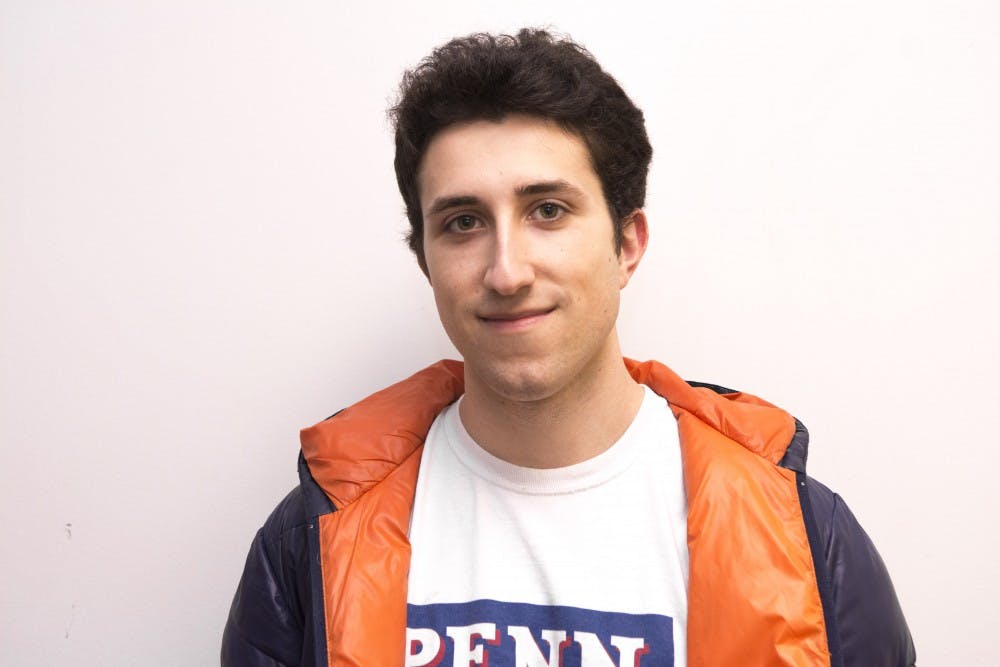There’s been a great deal of debate over the disruption caused by activists at CIA Director John Brennan’s event on Friday. And while much has been written either condemning the protesters’ message or simply disagreeing with how they expressed it, I can’t help but reflect on one of the more remarkable moments of the event.
What I’m referring to is the moment when Penn Law Dean Theodore Ruger took the stage and asked the protesters if they were, “trying to silence [Mr. Brennan].” Imagine, for a second, the implications of that question. Are we really worried that John Brennan — the director of an agency that kills hundreds of people across the globe — is at risk of repression by a small group of nonviolent activists?
Let me be clear: I don’t mean to belittle the importance of free speech. The right to open expression is a guiding principle of our institution. But even with the most important of principles, we do ourselves a disservice by following it blindly. And when I say blindly, note that I don’t mean in our dedication, but instead in our understanding.
A true dialogue on free speech must include the fact that a person’s ability both to speak and to be silenced is directly connected to the amount of power they possess. And shouldn’t it be mentioned that free speech — a right originally ratified in order to protect citizens from government censure — is being used to defend the highest ranking official in a government agency from the chants of a couple protesters? At the very least, that power dynamic ought to factor into the conversation.
In a University-wide email regarding the disruption, administrators made clear that Penn “cannot exist without the free exchange of ideas” and that, “the solution is not to suppress the ideas we reject, but instead to counter those ideas with better ones.” This all sounds great in theory, but I can’t help but think it disregards the reality of the situation.
The Students for a Democratic Society and the CIA do not stand on equal ground. Students don’t have the necessary platform to ever truly suppress — or even counter — the voice of a government agency.
The fact that the event was “shut down” doesn’t actually mean the protesters were able to silence Brennan. Actually being able to repress someone requires the capacity to do so — which, as I stated earlier, students do not possess. Just like the first two sets of activists who were shuffled out, the last group could have easily been removed. The only reason they weren’t is because having to use force on two non-violent citizens might have undermined the CIA’s legitimacy in the public eye. Technically, Brennan left because he chose to.
To be clear, my intent in writing this is neither to praise nor condemn the protesters. I just think we ought to reflect on the dynamic that might have lead them to protest in the first place. Obviously, shouting matches are not conducive to intellectual discourse, but given the lack of an equitable platform, protests are often the primary way that marginalized groups can have their voices heard.
Too often conflicts such as this one are being framed as a battle between those who promote free speech and those who wish to suppress it. Not only is this characterization inaccurate, it’s actually causing us to ignore the bigger picture.
I experienced this firsthand while reading the responses I received to my article about protesters at Yale. Though my intention was to raise awareness to the racialized dynamics that pervaded the situation, the majority of people who left comments claimed I wanted to criminalize free speech —despite the fact that I never once expressed that opinion.
Instead of being able to discuss an important issue, I was instead assumed into the free speech versus no free speech dichotomy, which is something I assume will happen with this article as well. So again, to make it abundantly clear, I believe that free speech is incredibly important. I just hope discussing it doesn’t cause us to disregard other issues.
The purpose of having the open expression guidelines is to make sure nobody’s voice can be censured. But when we let debates over free speech drown out all other issues, we actually end up undermining that very purpose. After all, what’s the point of having free speech if it’s the only thing we talk about?
CAMERON DICHTER is a College sophomore from Philadelphia, studying English. His email address is camd@ sas.upenn.edu. “real Talk” usually appears every other Monday.
The Daily Pennsylvanian is an independent, student-run newspaper. Please consider making a donation to support the coverage that shapes the University. Your generosity ensures a future of strong journalism at Penn.
DonatePlease note All comments are eligible for publication in The Daily Pennsylvanian.









